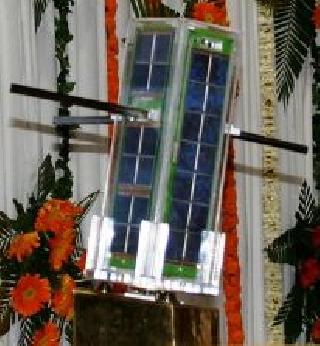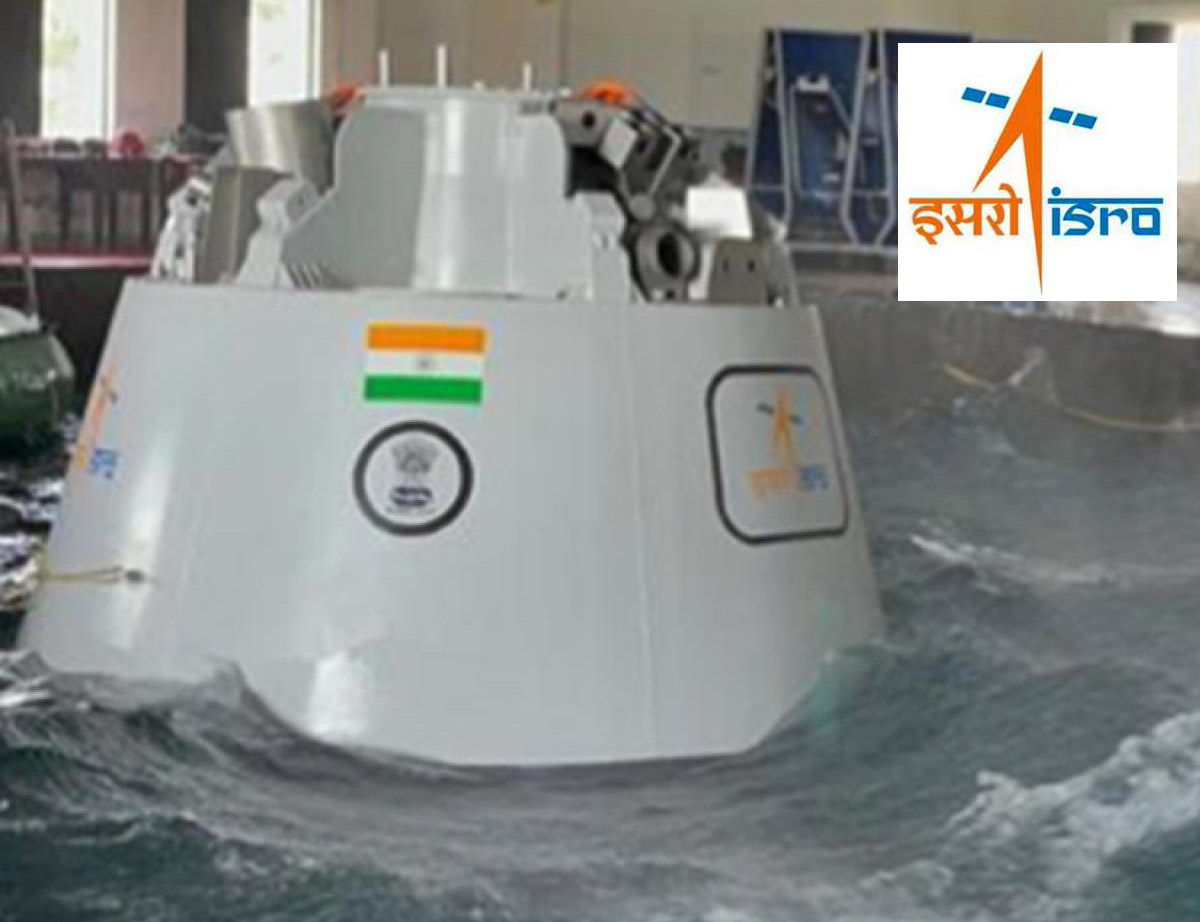
Jugnu nano-satellite. IIT Kanpur Photo.
IIT-Kanpur's indigenously built nano satellite 'Jugnu' may be successfully launched by the end of June this year from Sriharikota if everything goes according to plan.
Scientists from the Indian Space Research Organisation (ISRO) had visited the institute last month and had given a green signal to the engineering model. The flight model is being assembled in Bengaluru.
'Jugnu' is a nano-satellite built by the students and faculty of IIT Kanpur under the guidance of Indian Space Research Organisation.
'Jugnu', developed by using indigenous technology, weighs 3kg and is 34cm long and 10 cm wide. An estimated amount of Rs 2.5 crore was spent to develop the satellite.
The development of the concept 'Jugnu' geared up in the year 2008. In 2008, IIT Kanpur and ISRO had signed a MoU under which the engineering institution was to build a nano-satellite.
The three-foot-long time capsule is made of a special kind of copper and it will preserve the data stored inside for thousands of years.
The payload of the satellite includes an indigenously designed camera for near remote sensing and a GPS receiver. 'Jugnu' will transmit blinking signal, round the clock, all over the earth. The designed life span of the satellite is proposed to be one year.
Jugnu's mission will serve the following applications;
1. Micro Imaging System.
2. GPS receiver for locating the position of satellite in the orbit.
3. MEMS based IMU (Inertial Measurement Unit).
The satellite will revolve around the Earth 15 times in a day in polar orbit and will be visible over Kanpur for three to four times for a total of 20 minutes.
It will help in gathering prior information regarding flood, drought and disaster management. It will study vegetation patterns, water bodies and soil using a Near-IR camera.
With the help of micro imaging and micro electronic system, it will transfer the images to the IIT Kanpur campus.
'Jugnu' will be launched from Satish Dhawan Space Centre (also known as SHAR, located in Sriharikota, Andhra Pradesh) by ISRO's Polar Satellite Launch Vehicle (PSLV).
After its launch, the satellite will be continuously monitored and controlled by ground station located on the campus.
'Jugnu' has set the path for such inspiring innovations in the future and has also Strengthen activities in MEMS sensor based technology applications.
Low weights, cost effective nano-satellite like 'Jugnu' have significant role to play in the cost reduction, experimentation, reduction in the development and testing time for the new technologies and will significantly change the satellite development activity in the future.
- Courtesy:
IIT Kanpur
 Previous Article
Previous Article Next Article
Next Article













The Indian Air Force, in its flight trials evaluation report submitted before the Defence Ministry l..
view articleAn insight into the Medium Multi-Role Combat Aircraft competition...
view articleSky enthusiasts can now spot the International Space Station (ISS) commanded by Indian-American astr..
view article